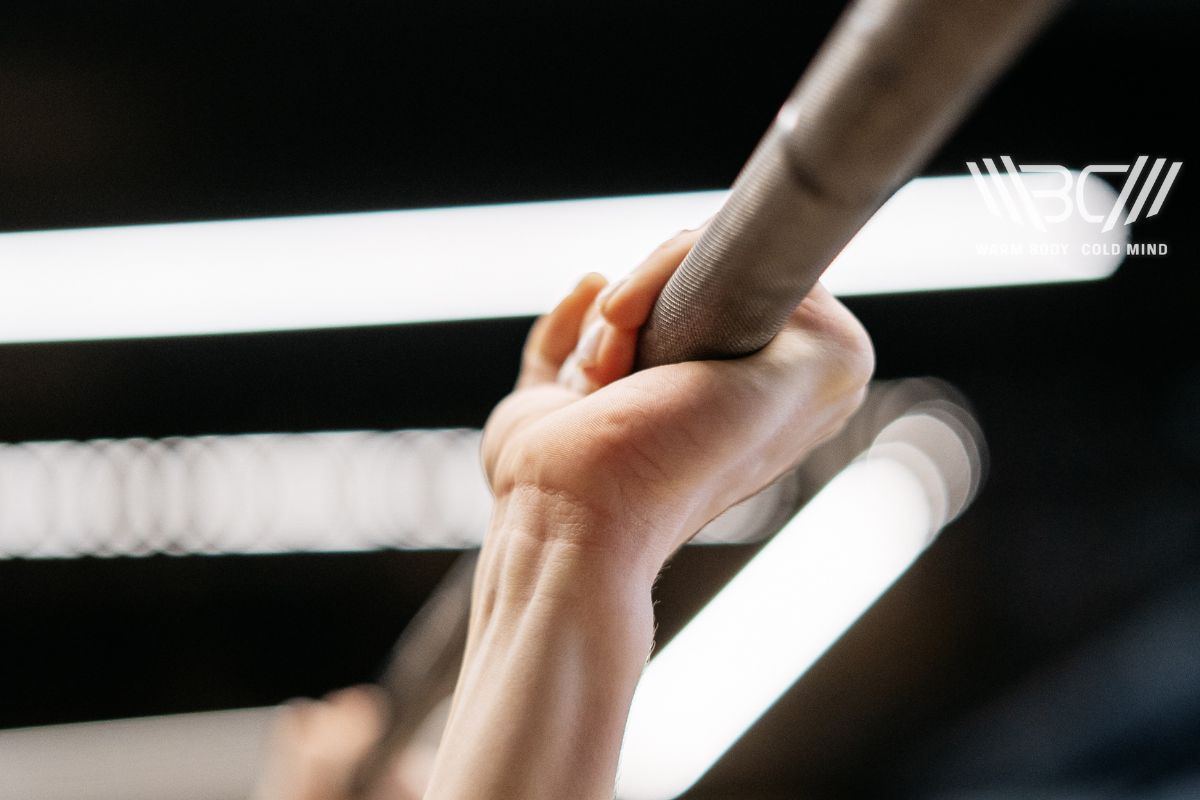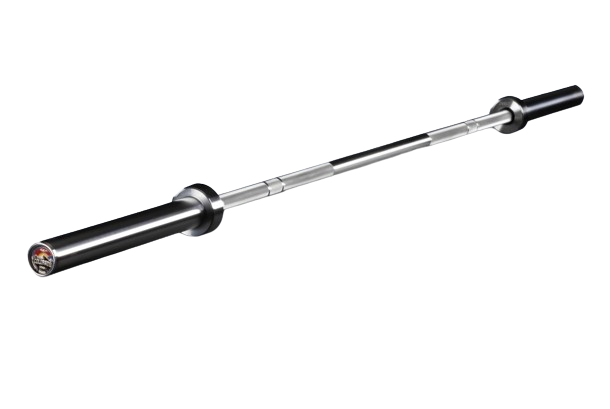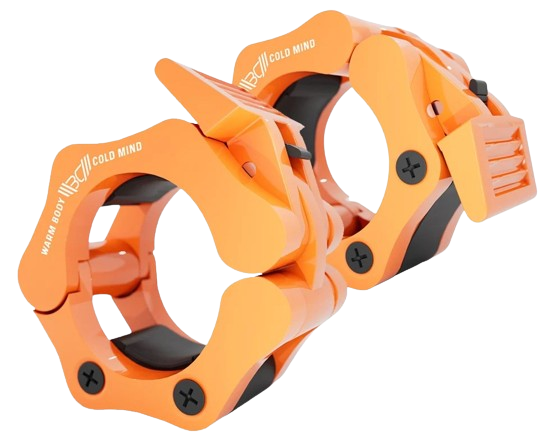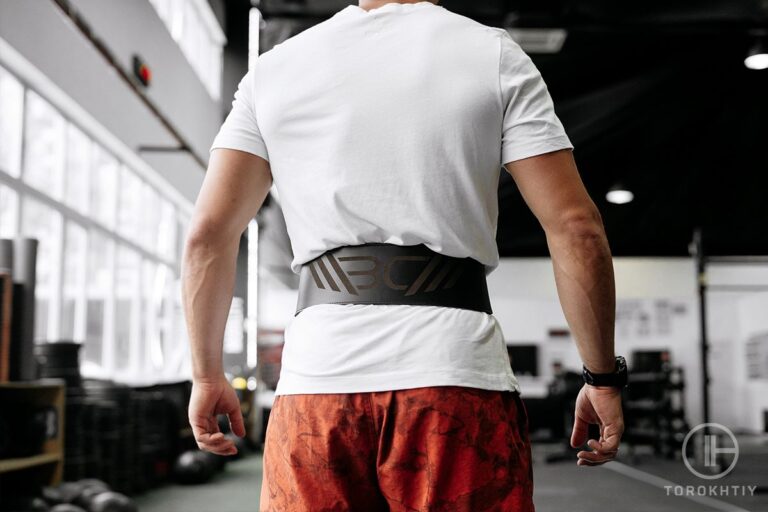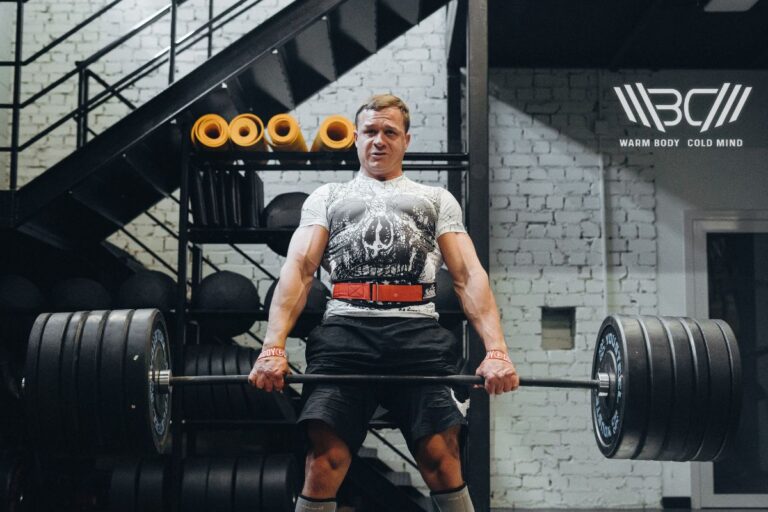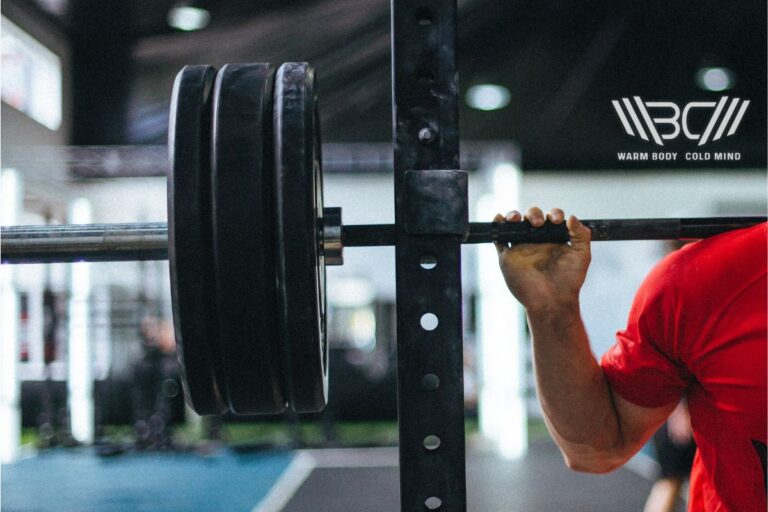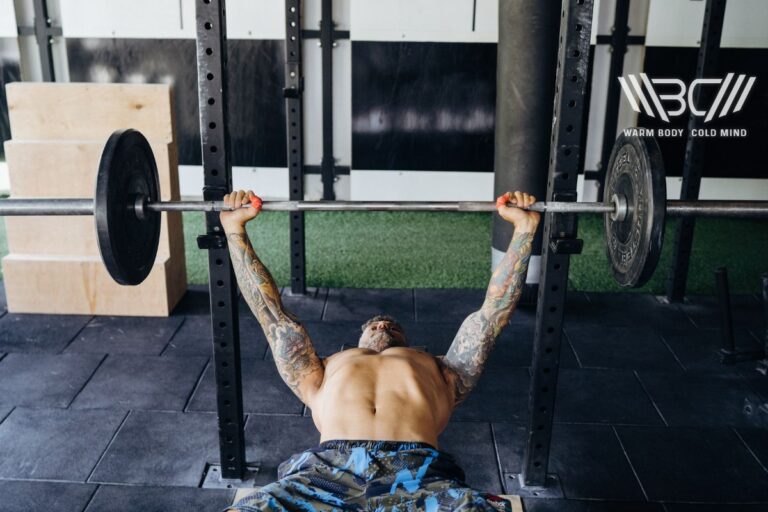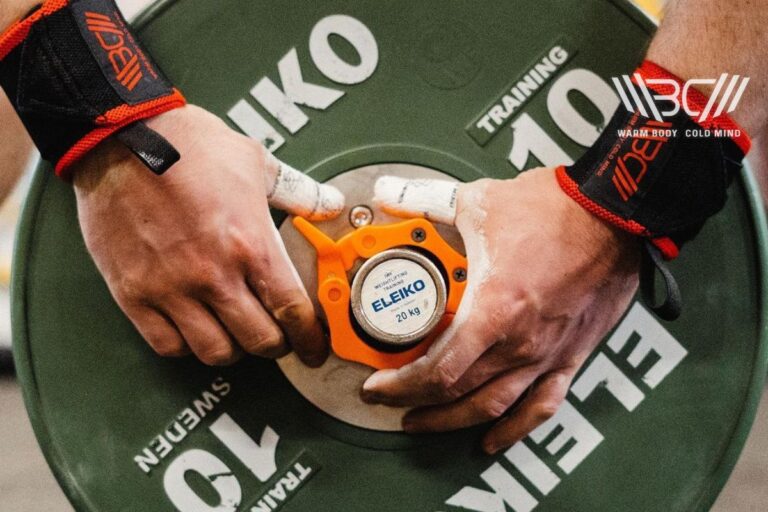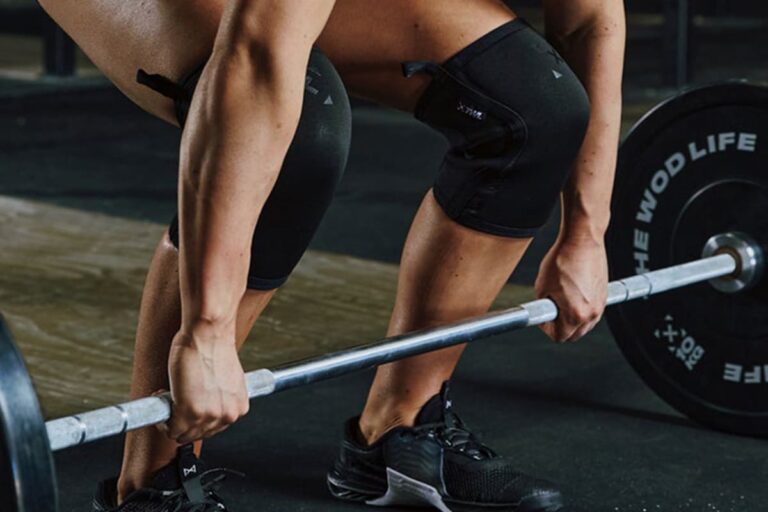How Much Does A Bench Press Bar Weigh? (3 Different Types)
Have you ever wondered how heavy is a bench press bar? Sure you have, that’s what made you want to read this article. But if you think that being familiar with the weight will help you drastically improve your results overnight, you’re quite off track. Still, knowing the standard weight is important and it can help you understand its role in your training.
Bench press bars might seem like just pieces of metal you lift, but they play a big role in shaping your progress and ensuring your safety. The weight affects everything from your form to the calculation of the total lifting weight, so if you want a well-structured routine, you have to know the bar’s weight.
Let’s see what exactly a bench press bar is, how heavy is a standard bench press bar, and how to choose the right one.
How heavy is a bench press bar? – A standard bar weighs 45 pounds (20.4 kg) for men and 35 pounds (15.9 kg) for women. However, there can be some variations, so make sure to check the specific bar’s weight before you decide to use it.
What Is a Bench Press Bar?
There’s a lot of complicated gym equipment out there. In fact, some of it is so complex that beginners won’t go anywhere near it because it’s too intimidating. But a bench press bar is far from that – it’s a key player in weightlifting, an absolute backbone that’s made to be simple and effective. It may look like a random metal rod at first glance, but in reality, there’s a lot of science and thought that goes into designing it.
A bench press bar has a sturdy steel shaft and sleeves at each end to hold the plates. You’ll also notice the knurling, which is a textured pattern along the shaft that improves your grip and gives you control, but does so without being uncomfortable. Of course, you’ll stumble upon knurling that’s too aggressive once in a while, but that’s a topic for another discussion.
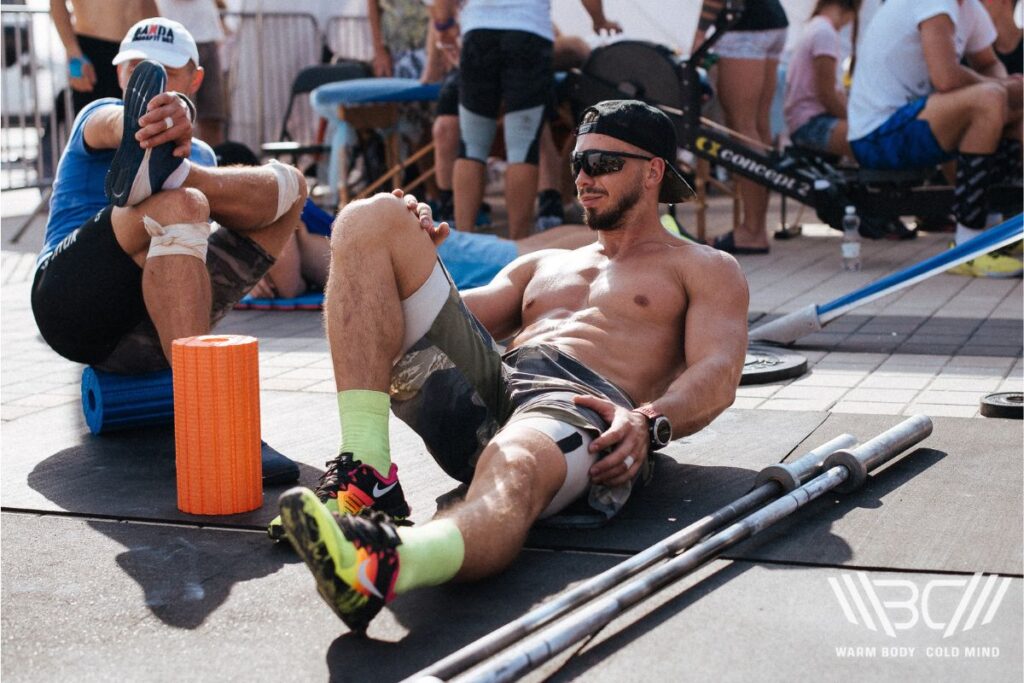
On each end of the bar, you’ll find collars. They make your weights stay in place during workouts and without them, the plates would wobble, shift, and just cause too many problems overall that would prevent you from having a good workout. The collars seem like a tiny little detail, but they make a big difference in terms of safety and efficiency.
Bench press bars are incredibly versatile, and they can withstand significant loads. They adapt to different workout routines, and although they’re straightforward and there’s not that much to them, they’re an essential piece of equipment in any gym.
How Much Does a Standard Bench Press Bar Weigh?
If you’re hitting the gym and want to lift some weights, you need to know how much do bench bars weigh because it affects the total amount of weight you’re lifting. When you know the weight, you have a starting point, and you can calculate exactly how much you want to lift.
A standard bench press bar, which is also known as an Olympic bar, weighs 45 pounds (20.4 kg) for men and 35 pounds (15.9 kg) for women. Men and women differ in strength, so it’s important to recognize that. It’s great to have a standard bench bar weight because it keeps things consistent, and you always know what to expect.
The reason behind the standardization is to help lifters gauge their strength and progress over time. Balanced weight distribution is key for stability, so the bench press bar is a super reliable tool in strength training.
Is There a Way to Tell How Much a Barbell Weighs?
There’s a way to tell, sure. Most barbells, especially in commercial gyms, are standardized, and you have just found out how much those weigh. However, if you see that the bar is not labeled or if you’re uncertain about its weight, there’s a simple technique you can use to make sure.
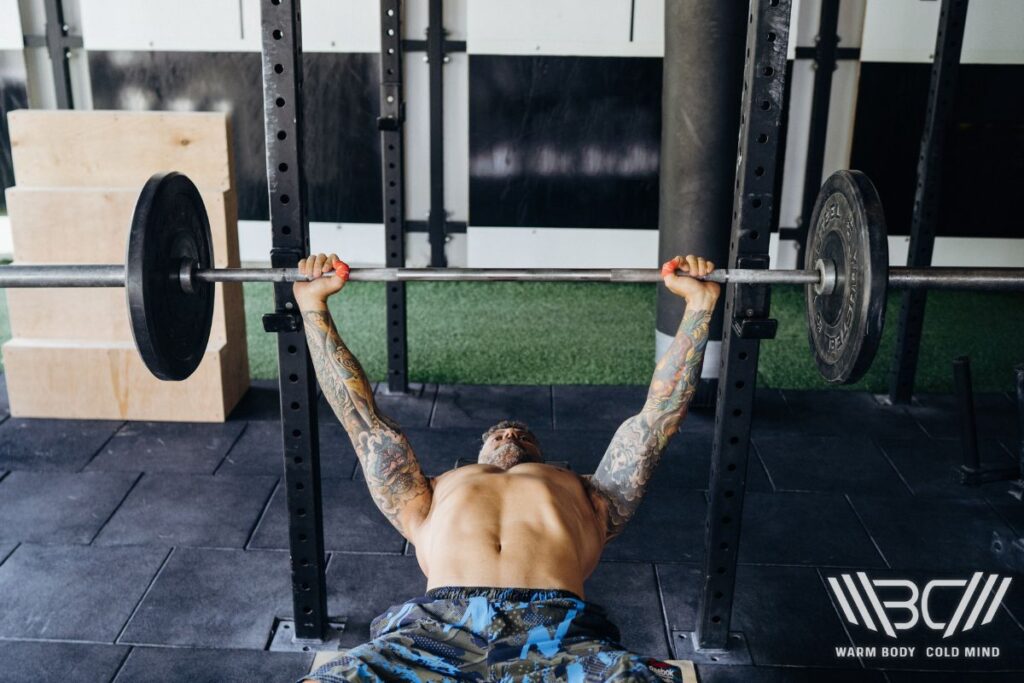
First, check for any markings on the bar. Manufacturers often stamp the weight or specifications on the shaft, so that’s always where you should look first. If you can’t find that kind of information or if there are no markings, just place the bar on a scale. Not your home scale, though, you need one made for weights.
If none of these options are available, you can use calibrated weight plates. Compare the barbell’s weight against the known weights and that should give you a good idea of what the bar weighs.
3 Common Bench Press Bar Types
One of the reasons bench press bars are so versatile is because there’s not just one type – there’s several different kinds of them, and although you could say some of them look somewhat unusual, their features are excellent and there’s no way you won’t find at least two or three that will work for you.
1. Olympic vs Regular Bar
The Olympic bar is a staple at pretty much every gym, and it’s known for its standardized dimensions and versatile design. It weighs 45 pounds (20.4 kg) for men and 35 pounds (15.9) kg for women. For a lot of people, this is a go-to choice.
The regular bar doesn’t have the strict standardization as the Olympic one, so its weight and dimensions vary across different models and brands. Usually, a regular barbell is shorter and lighter (but that depends on the manufacturer).
2. Power Bar
This one is made specially for powerlifting and weighs 45 pounds (20.4 kg) for both men and women. It has aggressive knurling, robust build, and it’s designed to be able to withstand really heavy lifts. Think of it as an older, tougher brother of the Olympic bar.
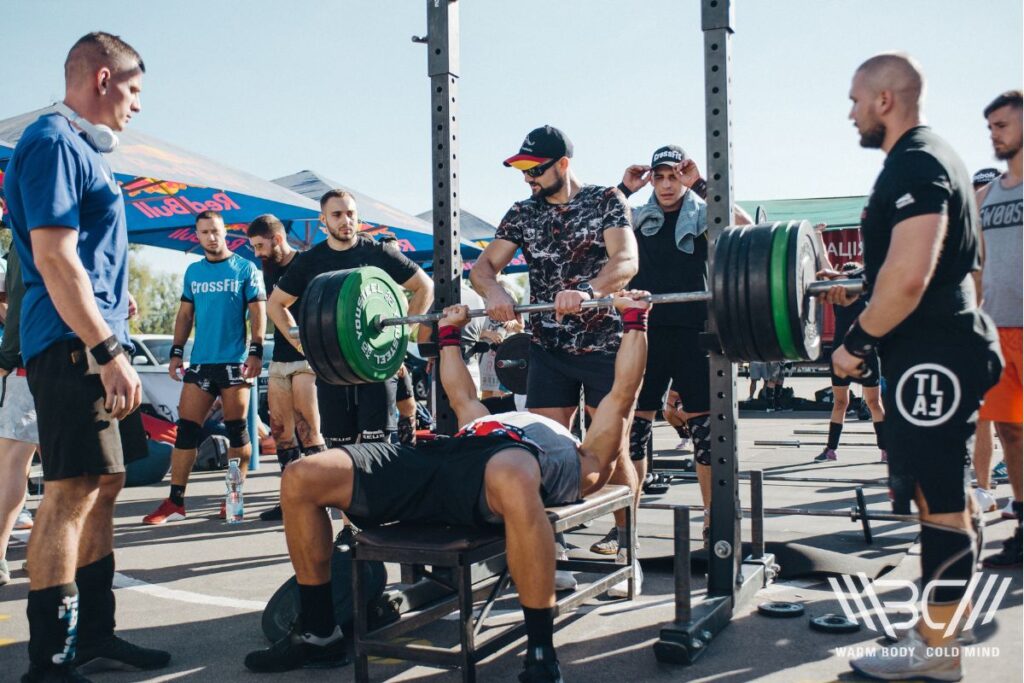
3. Specialty Bars
This is a special category because the world of specialty bars has a fascinating number of options, and it puts a twist on your regular strength training. Take the Swiss bar, for example. It has a multi-grip design with various angles to target different muscle groups.
There’s also the cambered bar that’s known for its curved design to accommodate a different range of motion, but it will probably tire you out more. We can’t forget the trap bar that almost doesn’t even look like an actual bar, but it is ideal for deadlift variations and it can generate more power during lifts. Football bar is another specialty bar type, and it has neutral grips for less stress on the shoulders.
These ones are a bit tricky when it comes to the weight because it varies from bar to bar, so you’ll need to check the specs to see if any of them would work for you.
| BAR TYPE | WEIGHT (MEN) | WEIGHT (WOMEN) | KEY FEATURES |
| Olympic Bar | 45 pounds (20.4 kg) | 35 pounds (15.9 kg) | Standardized dimensions, versatile for various exercises |
| Regular Bar | Varies | Varies | Non-standardized, varies in weight and dimensions |
| Power Bar | 45 pounds (20.4 kg) | 45 pounds (20.4 kg) | Robust build, aggressive knurling, for heavy lifts |
| Swiss Bar | Varies | Varies | Multi-grip design with various angles |
| Cambered Bar | Varies | Varies | Curved design for a different range of motion |
| Trap Bar | Varies | Varies | Ideal for deadlift variations |
| Football Bar | Varies | Varies | Neutral grips for less stress on the shoulders |
How to Choose the Right Bar for Bench Press?
Without the right bar, you can kiss a good workout goodbye. The right bar can make or break an exercise, and with so many types and bars on the market, you’re probably overwhelmed and don’t really know what to choose.
Keep reading because we’ll go over the most important things to consider.
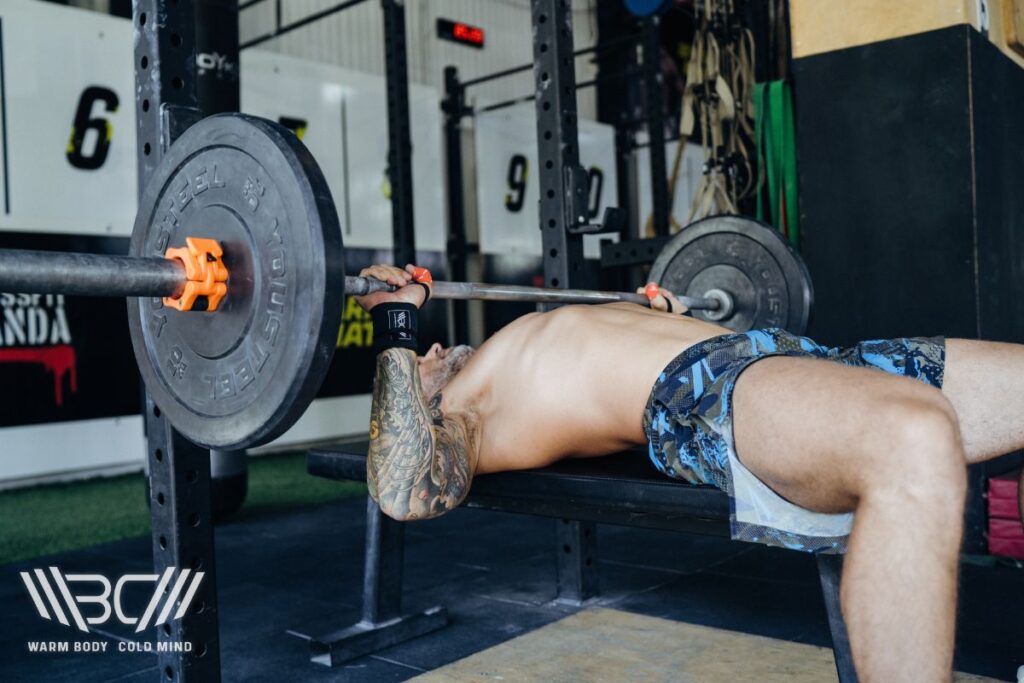
1. Bar Type
The first thing to do is to choose a type. Many people go for the Olympic bar – it’s a classic. Its design is versatile, the dimensions are standardized, and you can do all sorts of workouts with it. But just because they’re popular doesn’t mean they’re the right choice for you. There’s also the powerlifting bar, or specialty bars, so check their features and think about what you want to use them for before settling on a type.
2. Gender
Your gender is also something you should consider because of the bar’s weight and dimensions. Standardized Olympic bars have different weights for men and women, and the weight is important for a balanced, effective workout. Some gyms also have bars that are made specifically for women, with a slightly smaller diameter.
3. Exercise Type
Think about the exercises you want to do because your bar needs to be suitable for them. An Olympic bar might be ideal because it’s versatile, but if you like various lifts in your routine, like deadlifts or squats, a powerlifting bar could be a better choice because of its robust build and added stability.
4. Knurling and Grip
Pay attention to the knurling – you want it to improve your grip, but it needs to be comfortable at the same time. Different bars have varying degrees of knurling aggressiveness and when it comes to bench press, a moderate knurling is your best bet.
5. Bar Diameter
The diameter is a big deal, especially if you have small hands. Some bars have a slightly smaller diameter so they’re more comfortable for people with small hands. Consider the way the bar feels in your hand during gripping and lifting.
Our Bench Press Bar Recommendation – Rep Colorado Bar
Rep’s Colorado Bar is one of the best ones on the market and if you’re getting frustrated with not being able to make a choice all on your own, you can go with what we recommend.
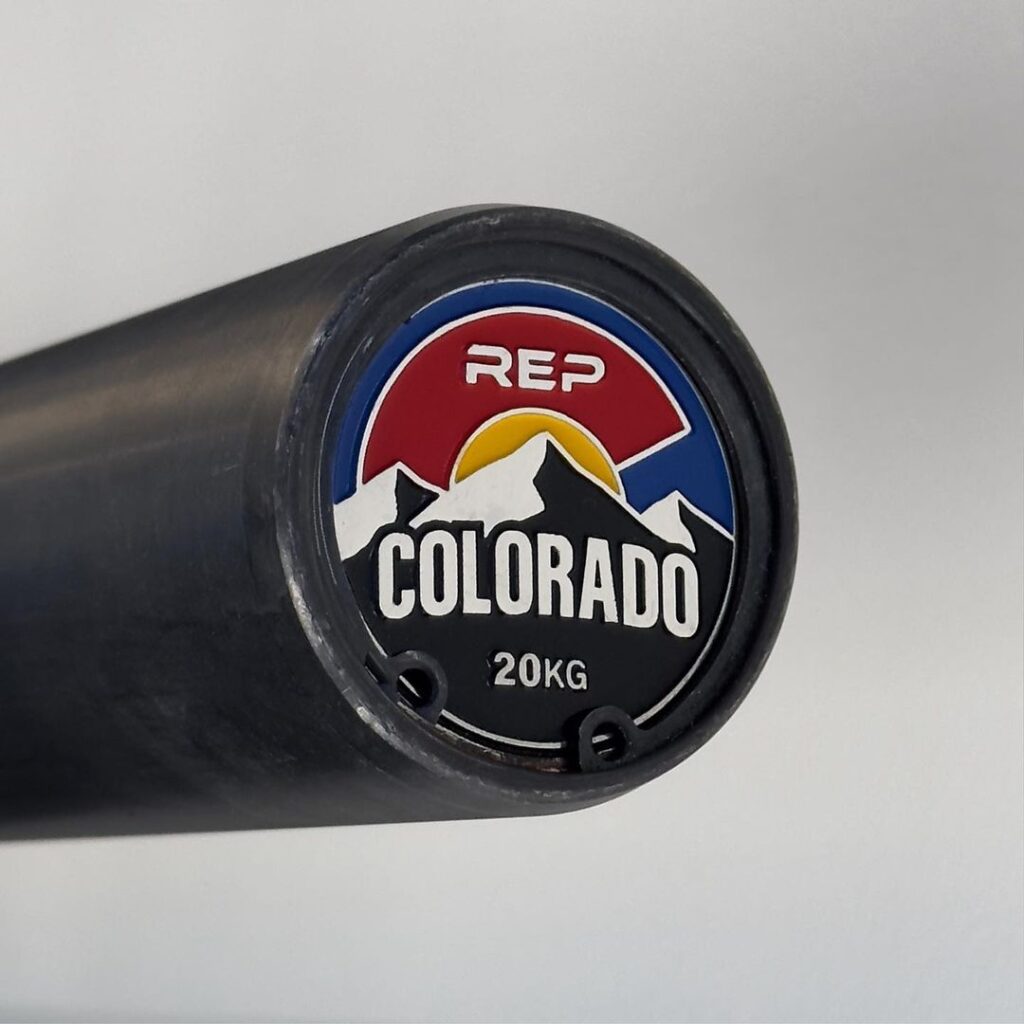
The bar weighs 44.1 pounds (20 kg) and it’s an absolute powerhouse. It’s good for cross-training, powerlifting, and Olympic weightlifting. There are a few colors available that are paired with Duracoat sleeves or hard chrome finishes. It has medium-depth, volcano-style knurling, and a 28.5 mm diameter shaft, with smooth sleeves, composite bushings for consistent rotation, and dual knurl markings.
Pros
- Dual knurl markings
- Resistant to corrosion
- Very durable
Cons
- Shaft diameter doesn’t match IWF specs
Subscribe!
The latest reviews of must-have home gym training equipment, apparel, and supplements that will enhance your performance and bring you new results.
Do I Need Barbell Collars?
Well, barbell collars are in no way (legally) mandatory. With that being said – most seasoned lifters/coaches will recommend them regardless of your lifting experience level.
This is because collars provide the lifter with confidence, stability, and most importantly – safety. These three aspects will greatly enhance your lifting session, especially if you’re a beginner.
Earlier in the article, we mentioned how barbell collars help keep the weight plate in place. If the plates move even an inch, a massive disbalance can be placed on the barbell lowering the lifters stability, and safety.
You definitely want barbell collars. Even if you’re not using them all the time, it is a comforting thought to know that they are readily available.
Our Recommended Barbell Collars – Warm Body Cold Mind 2’’ Olympic Barbell Collars
Our WBCM 2’’ Olympic Barbell Collars are available in 11 colors, and they redefine style and safety. They seamlessly fit on all 2’’ Olympic standard barbells and have a swift release mechanism.
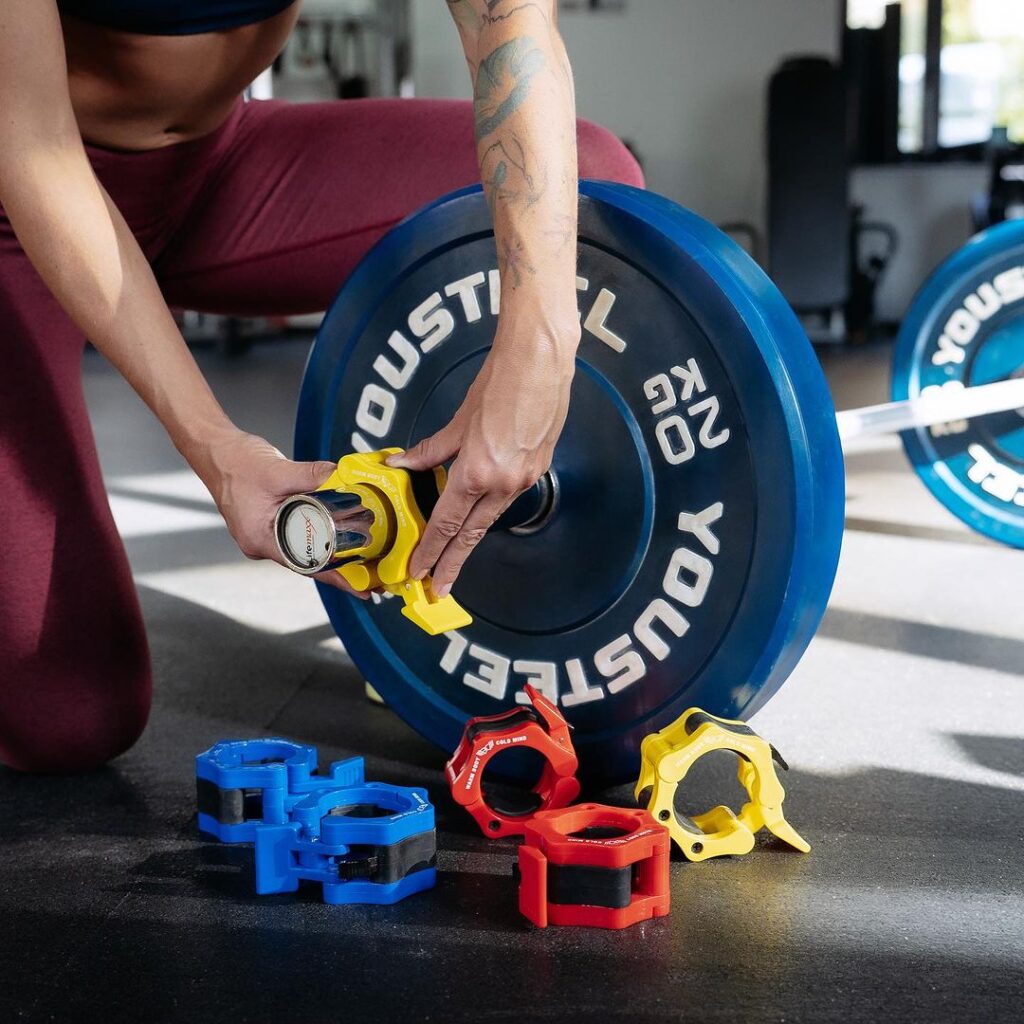
This makes sure that the weights stay in place (an underrated aspect of barbell collars), which is especially important for functional fitness workouts, Olympic weightlifting, powerlifting, cross-training, and any exercises where you need to drop the bar from an elevated position (like deadlifts and bench presses).
These collars are resistant to scratches, and you can use them all you want because they’re made to withstand regular use, however intense it may be. The stainless-steel pins make them even more durable, so you can be sure you’ll have them for a long time.
Pros
- Superior security
- Resistant to scratches
- Very durable
- Affordable
Cons
- The collars fit tightly so they can be difficult to remove
FAQ
Are All Bench Press Bars 45 Lbs?
No, not all bench press bars weigh 45 pounds. The standard bar weight for bench press is 45 pounds (or 35 pounds for women), but as far as other types of bars go, the weight varies so before you start working out, make sure to check the weight first.
Is a Heavier Bench Press Bar Better?
No, that’s not necessarily the case. The ideal weight of bench press bars depends on your preferences and strength, as well as what you’re trying to accomplish. Some people prefer heavier bars, others don’t. It all boils down to what goes with the level of your strength fitness goals.
Is There a Special Bar for Bench Press?
There’s no specific bar that’s used exclusively for bench press, but there are powerlifting and specialty bars that are suitable for specific lifting preferences because they have variations in grip, knurling, or durability.
Do You Count the Bar Weight for Your Bench Press Max?
Yes, because your bench press max is the total weight you’re lifting. If you’re using a standard Olympic bar, you already know what you’re starting off with, but if you don’t, check the weight of the bar before calculating your bench press max.
Conclusion
Hopefully, now you no longer have any doubts or questions when it comes to the bench press bar, at least in terms of the average bench press bar weight. Keep in mind that the only bars you can really know the weight for are standardized Olympic bars, so if you’re working with anything else, do yourself a favor and check the weight first.
Surprises are awesome, but you really don’t want the weight you’re lifting to surprise you because that’s a recipe for a disaster.
If you already have a bar you love and use all the time, our Warm Body Cold Mind 2’’ Olympic Barbell Collars will complement it perfectly. And if you’re still in the market for a new bar, go with the Rep Colorado Bar.
What’s your take on this? How much does an Olympic bench press bar weigh – did you know before you read this article? What’s the ideal weight for you, and why? Is there a bar you would recommend?
As always, we look forward to anything you have to say, so leave a comment or two!
Bench pressing out!
References:
- Adam Zajac, Michal Krzysztofik, Michal Wilk, Piotr Żmijewski “Can the Cambered Bar Enhance Acute Performance in the Bench Press Exercise?” Frontiers in Physiology 11 (2020).
- Arthur Stewart, Ioannis Agouris, Justin WL Keogh, Paul A. Swinton, Ray Lloyd “A Biomechanical Analysis of Straight and Hexagonal Barbell Deadlifts Using Submaximal Loads,” Journal of Strength and Conditioning Research 25, no. 7 (2011): 2000-2009.
- Ben Emminger “Why You Should Be Using Barbell Collars,” Gear Patrol, https://www.gearpatrol.com/fitness/a43316451/barbell-collars-explained/ (accessed February 13th, 2024).
- Giuseppe Grillone, Matteo Cortesi, Rocco Di Michele, Sandro Bartolomei “A Comparison between Male and Female Athletes in Relative Strength and Power Performances,” Journal of Functional Morphology and Kinesiology 6, no. 1 (2021): 17.5.
- Phil Sabatini “Could Weight Distribution Be the Reason You’re Missing Olympic Lifts?” Barbend https://barbend.com/weight-distribution-lifting/ (accessed February 13th, 2024).
Author: Jason Li
Personal Coach | Functional Range Conditioning Mobility Specialist
Jason is an NYC personal training expert and National level Olympic Weightlifting Coach with over 10 years of experience training everyday clients to high levels of performance. He has trained everyone from youth (13 years old and under) to masters (60+ years old) to regional and national rankings for powerlifting, Olympic Weightlifting, Short distance (up to 200m) sprinting, discus & hammer throwing.

